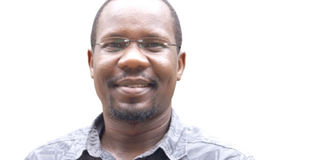Ghana tops us again, only this time in a dubious way

With a 2-0 score, Ghana denied us lifting the Africa Cup of Nations in 1978. Even when we returned to the championship early this year, Ghana still stood in our way with a first-half penalty goal in the first round. We did not recover, failing to advance to the next stage.
That is sport.
Now, if any country in Africa were to outdo Uganda in the high number of ministers, I would never have counted Ghana in that bracket.
But, see. Ghana’s new president Nana Akufo-Addo has named a cabinet of 110 ministers. One hundred and ten. What’s more, it is a monstrosity. For example, there is a minister of agriculture. The man has one, two, three deputies. That is not all.
There is a minister of state for agriculture in the president’s office. In a way this sounds like Uganda, where apart from the ministers you also have a presidential adviser on agriculture.
Uganda is slightly larger than Ghana in size and has 10 million more people. Ghana is richer, though, with a much larger economy thanks to the oil and mining sectors.
Uganda has 81 ministerial slots, with a couple still unfilled. For the longest time Ugandans have complained about this Namboole-size Cabinet, let alone Parliament.
So, what is going on in Ghana? The expected, more natural, thing would have been for the new president, who took office in January, to cut the size of cabinet from 29 ministers in the defeated government of John Mahama. Instead he expands it almost four-fold.
Ghanaians on social media and in the mainstream media are furious. The kinder ones have taken to referring to the magnitude of their cabinet as “elephant-size”, “in reference to the symbol of the president’s party, the New Patriotic Party”.
Of course, president Akufo-Addo has defended himself. He says he inherited “swollen challenges” that require a swollen cabinet to address. The news website myjoyonline.com quoted the president saying that problems he has to solve include “persistent decline in the agricultural sector, low growth rate, major issues of corruption and leakage of revenue”.
Indeed, the shine is no longer as sharp over there in Ghana. The local currency has been flailing against the dollar, inflation is in double-digits, debt to GDP ratio is hovering around 70 per cent, annual growth rate is at its lowest at about 3.6 per cent, and power cuts are common.
(When I was in Accra for a few weeks about a year ago, the power rationing — load shedding in UGLish — felt like Kampala in 2005-06. It was bad.)
And the courageous measures the new man at Flagstaff House has zeroed on? A cabinet line-up the sizes of an elephant and a whale combined. He says his critics will be shushed by the success his mammoth crowd of ministers will unleash. Time will tell, although the first steps are quite telling.
The man could well be engaged in old-fashioned patronage, rewarding every notable supporter with a ministerial job that comes with high-end perks. Crushing the public coffers is a small price to pay, it seems. In which case Ghanaians should keep a watchful eye.
In Uganda, our large Cabinets have served President Museveni very well over the decades, not so the mass of Ugandans. The peace obtaining is much appreciated. So are the few roads being fixed. That is it. The schools suck. The hospitals suck. Agriculture sucks. Corruption is sucking everything else out of the economy. Inequality is growing.
Stop press!
The fatal gunning down of AIGP Andrew Felix Kaweesi, his bodyguard and driver (the latter two both cops) on Friday morning is most abhorrent. Obviously, the killers timed and executed their act to ensure it has a gung-ho feel to it.
They seem emboldened. Targeting a very senior and very visible police officer and gunning him down as he left his home to start the workday is very likely the act of people out to get someone.
Who is next is a question that those charged with our safety are going to have to grapple with. Remember, the brazen killers in 2015 of Joan Kagezi, a senior prosecutor, are still at large.
Rest in peace.
Mr Tabaire is the co-founder and director of programmes at African Centre for Media Excellence in Kampala.
[email protected]
Twitter:@btabaire




